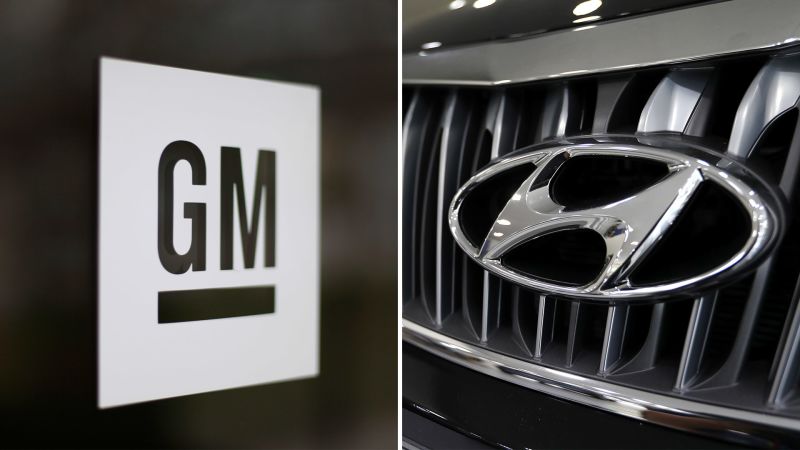Hyundai and General Motors have announced a partnership to work together on the development of new vehicles, supply chains, and technologies with the goal of cutting costs and improving efficiency. The collaboration comes as global carmakers face pressure to advance electric vehicle and battery technology to meet emissions regulations worldwide, which could require significant investments in research and development. Chinese automakers are also emerging as potential competitors, especially in the electric vehicle market, as they look to export their lower-cost models in response to an oversupply issue in their home market.
The agreement between Hyundai and GM will focus on joint product development, manufacturing, and future clean energy technologies, including internal combustion, clean-energy, electric, and hydrogen vehicles. The non-binding framework agreement was signed by Hyundai Motor Executive Chair Euisun Chung and GM Chair and CEO Mary Barra. Both companies aim to leverage their scale and creativity to deliver more competitive vehicles to customers in a faster and more efficient manner, as well as drive cost efficiencies and provide stronger customer value.
Hyundai Motor, along with its affiliate Kia, is currently the world’s third-largest automaker by sales, while GM holds the title of America’s largest carmaker, ahead of Toyota. The partnership aims to enhance competitiveness in key markets and vehicle segments, as well as explore opportunities for collaboration that will benefit both companies. In an industry driven by price wars and fierce competition, carmakers are increasingly seeking partnerships to improve their positions and achieve growth in a challenging market environment.
In a similar trend, car manufacturers are forming alliances and joint ventures to strengthen their positions in the market. Last year, Nissan and Renault finalized the terms of their revamped alliance, focusing on the development of electric vehicles. GM and Honda, along with Cruise – GM’s autonomous driving subsidiary, have partnered to create a driverless ride-hailing service in Japan. These collaborations are aimed at driving innovation, reducing costs, and increasing competitiveness in the automotive industry as companies navigate challenges such as shifting consumer preferences, regulatory requirements, and technological advancements.
The partnership between Hyundai and GM reflects a broader trend in the automotive industry of cooperation and consolidation to address common challenges and capitalize on opportunities for growth. By combining their expertise, resources, and capabilities, the two companies aim to accelerate the development of new technologies and vehicles while improving efficiency and cost-effectiveness. As the industry transitions towards electric and autonomous vehicles, collaboration between traditional automakers and new entrants will be essential to staying competitive and meeting evolving customer needs and regulatory requirements.
Overall, the collaboration between Hyundai and GM signifies a strategic move by both companies to leverage their strengths and resources to navigate a rapidly changing and increasingly competitive automotive landscape. By working together on product development, manufacturing, and clean energy technologies, they aim to enhance their competitiveness, drive innovation, and deliver value to customers. The partnership also highlights the importance of industry partnerships and alliances in driving growth and addressing challenges in the automotive sector, as companies seek to create sustainable and successful businesses in the face of evolving market dynamics and technological advancements.


